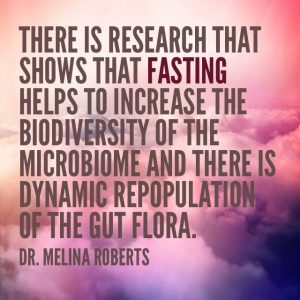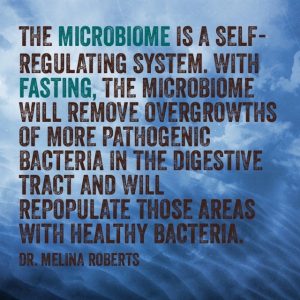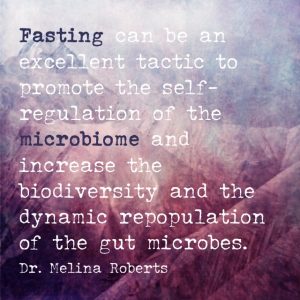There is research that shows that fasting helps to increase the biodiversity of the microbiome and there is a dynamic repopulation of the gut flora.
“Fasting affects the population dynamics and activities of the gut microbiota, an interplay that impacts the host’s fasting biology.” (Secor and Carey, 2016)
Intermittent fasting (IF) changed the gut microbiome resulting in increased bacteria richness and enrichment of the Lactobacillaceae, Bacterioidaceae and Prevotellaceae families (Cignarella et al, 2018).
The microbiome is a self-regulating system. With fasting, the microbiome will remove overgrowths of more pathogenic bacteria in the digestive tract and will repopulate those areas with healthy bacteria.
Fasting can be an excellent tactic to promote the self-regulation of the microbiome and increase the biodiversity and the dynamic repopulation of the gut microbes.
References:
Secor SM and Carey HV. (2016) Integrative Physiology of Fasting. Compr Physiol. 6(2):773-825. doi: 10.1002/cphy.c150013.
Cignarella F, Cantoni C, Ghezzi L, Salter A, Dorsett Y, Chen L, Fontana L, Weinstock GM, Cross AH, Zhou Y, Piccio L. (2018). Intermittent fasting confers protection in CNS autoimmunity by altering the gut microbiota. Cell Metab. 27(6):1222-1235.e6. doi: 10.1016/j.cmet.2018.05.006



